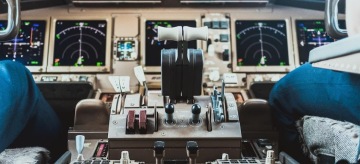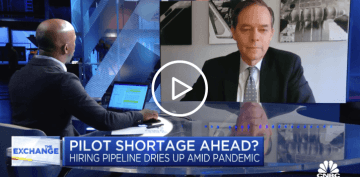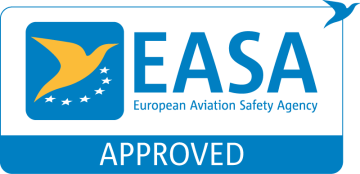May 21, 2022
Should I Start My Pilot Training Now?
Pilots, flight attendants and the whole aviation industry could have hardly imagined a worse year than 2020 with the COVID-19 outbreak and the resulting massive travel disruptions. And while most pilots currently have a few reasons to complain, those who have been dreaming of becoming a pilot should not hesitate and begin their pilot training right now!

The aviation industry was one of the worst hit by the restrictions on travel in 2020. Over 90% of the global fleet was not operating and a few hundred thousand pilots sat at home idle without having a clear idea of when they would get into a cockpit and take off again. Even huge airlines, such as Delta Airlines, Lufthansa or Emirates, have had to dismiss thousands of employees and retire some of their aircraft. Despite all of this, signing up for pilot training programme now might be a smart idea. Let us explain why.
Why is it actually a good time now to consider starting pilot training?
To become a pilot takes some time. Candidates who decide to embark on a career as a pilot need about 2 to 3 years of training before they are ready to fly planes such as an Airbus A320 or a Boeing B737 and work as a first officer. Therefore, aspirants who begin the training now will have completed the process at the time when the air industry is expected to peak again. This prediction is also shared by the premier manufacturer of commercial jetliners Boeing in their Pilot and Technician Outlook 2020–2039.
Why do we think the aviation industry will recover to pre-coronavirus levels and most airlines will begin hiring soon?
Global spread of COVID-19 vaccine, improved testing and the unrelenting hunger to travel are some of the factors hinting that the air industry is certain to bounce back. Initially, we will see increasing demand for domestic and intracontinental flights, whilst intercontinental travel should take longer. In places like Europe, North America or China this might happen quickly, leading to a large increase in air traffic.
According to The International Air Transport Association (IATA), the number of older pilots retiring in the next 5 to 15 years is bound to rise. The COVID-19 pandemic may well speed up the process as many pilots will not return to the industry. This will result in a continuous pilot shortage and thus a strong global demand for new pilots over the next decade.

Regardless of the crisis, learning to fly should pay off
No one has a crystal ball to predict the future. However, companies and experts remain optimistic and confident that there will be enough career opportunities for pilots. Does it sound doubtful to you?
Well, let’s take into consideration several facts:
Firstly, as soon as the pandemic finally ends, people will want to travel again and air companies will have to be ready to satisfy their customers. To be able to succeed, highly professional staff, i.e. mainly well-trained and high-skilled pilots, will be desperately needed. In addition, new airlines are likely to launch trying to take advantage of the new opportunities and gaps in the post-pandemic market which will also increase the demand for pilots.
Secondly, the demand for flight instructors – those needed for tutoring aspiring pilots - continues to be high despite the pandemic and the uncertainty it has caused. For some pilots, becoming a flight instructor could be a good way to start off a pilot’s career after finishing the initial training. In spite of the pandemic (or as a result of it?), inquiries for private and business jet flights increased in 2020. Due to the greater demand, private flight operators will also need to hire more pilots. Working as this type of pilot is another way to accumulate your flying hours after pilot training and some view it as an interesting career in itself.
To sum up, it is still definitely worth becoming a pilot today because, sooner or later, people will start to travel again and most experts are predicting a critical shortage of pilots after the aviation industry rebounds from the pandemic.




